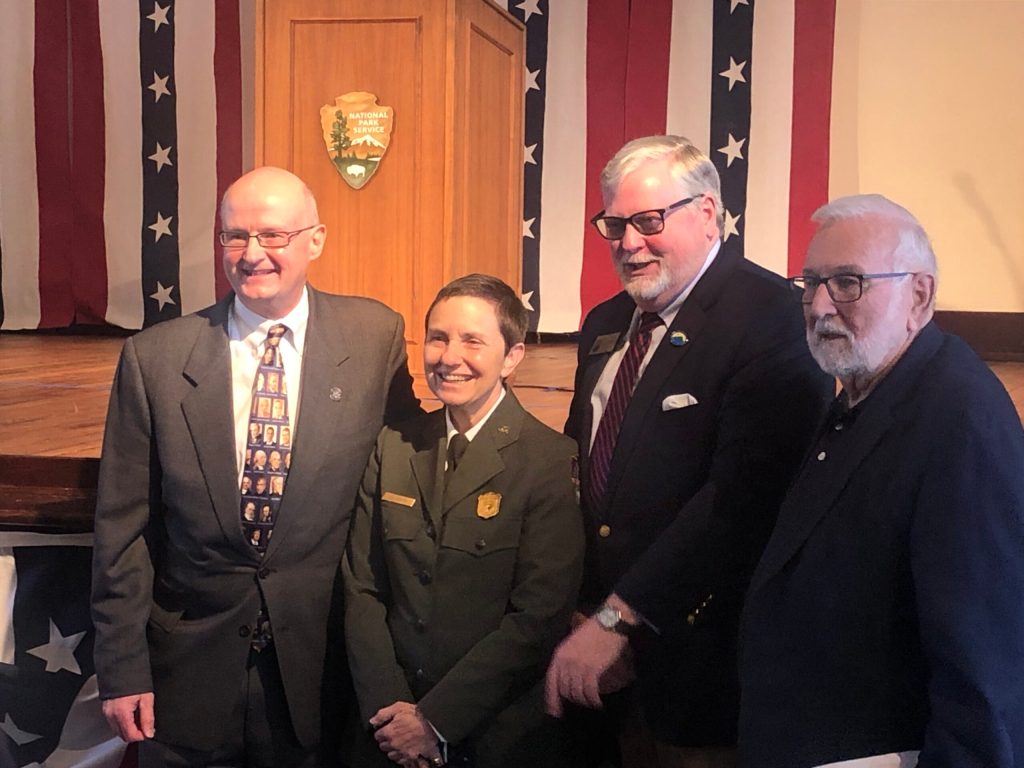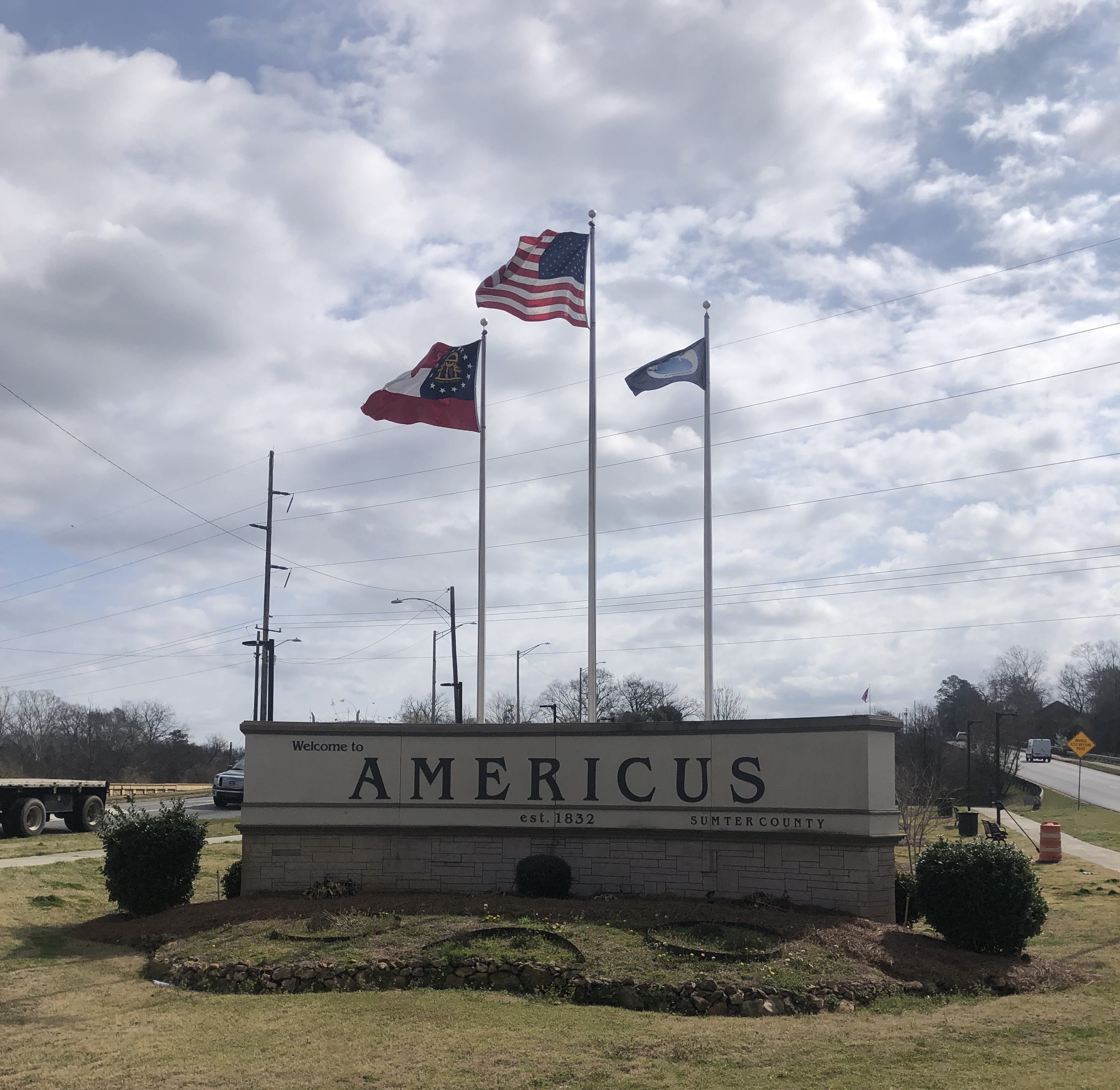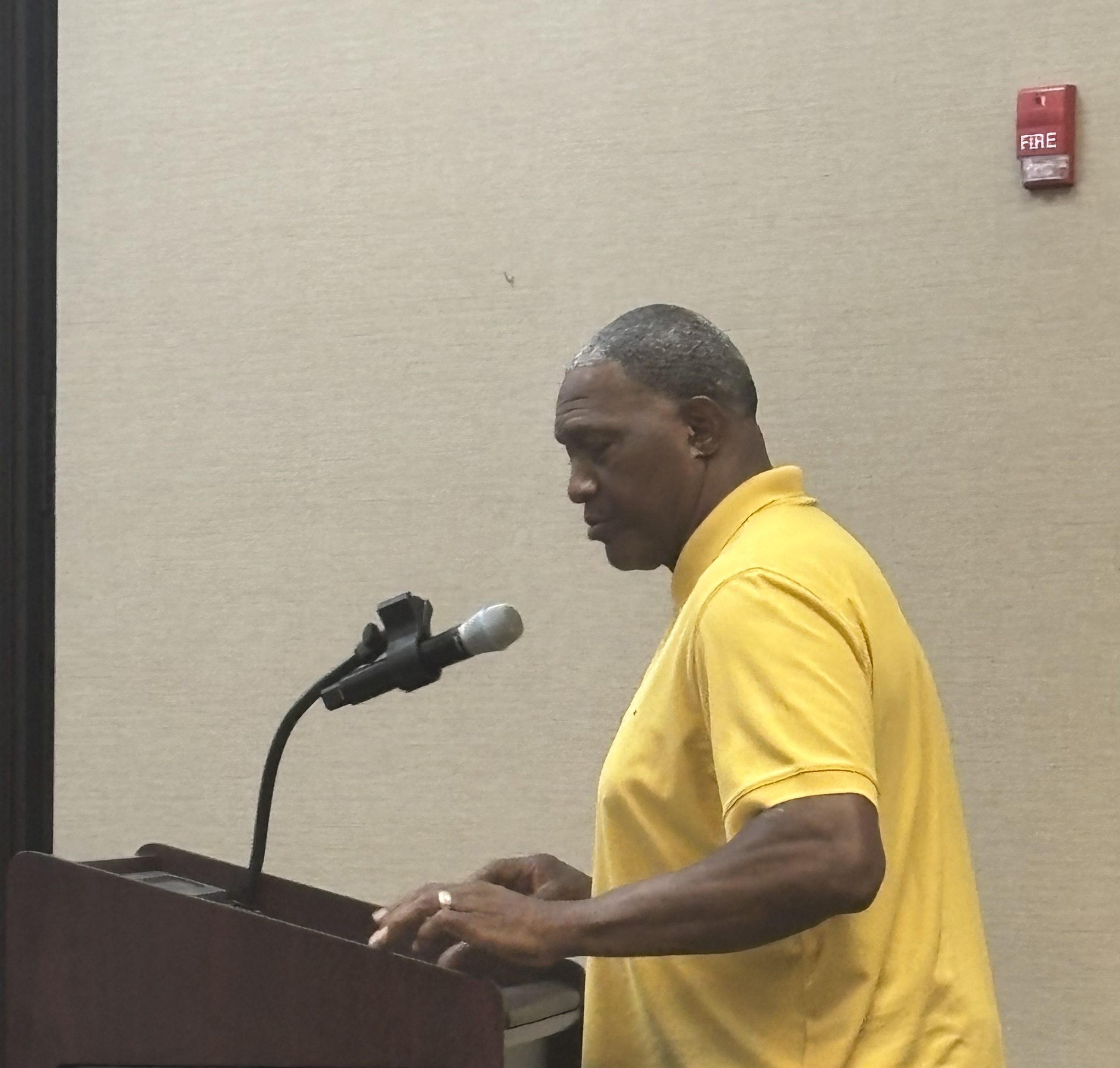President’s Day Celebrated at the Plains Highschool
Published 3:43 pm Wednesday, February 21, 2024

- Historian Dr. Larry Cook, Parks Superintendent Jill Stuckey, Mayor Lee Kinnamon, and Dr. Stanly Godbold Junior, former professor at Mississippi State University.
|
Getting your Trinity Audio player ready...
|
Mayor Lee Kinnamon addressed those gathered in the Plains Auditorium for President’s Day, talking about President Jimmy Carter’s relationship to his hometown.
“His dream as most of ya’ll know was to, through the U.S. Navy, see the world. To disengage from this place, and to move out into a much larger world. And we all know that Miss Rosalynn’s goal was likewise. She didn’t much care for the idea and being under the watchful eye of a mother-in-law and a mother and having to live out a life here that she saw her own mother living.”
Kinnamon noted a change in Jimmy Carter after returning from the Navy to be at his father’s deathbed.
“Because during that time, as his father was dying, and he sat by the bedside with him, they connected in a way that he had not previously been able to connect with his father.”
Jimmy Carter observed the grief of so many people whose lives had been touched by his father. It was this experience that led to Jimmy Carter to decide to come home after questioning whether his own death would have a similar impact.
Kinnamon noted that when we returned, Jimmy Carter served in similar capacities as his father, on the hospital board, the board of education, and other civic organizations. But unlike his father, he served after Brown vs. Board of Education was decided, a landmark case against segregation. Kinnamon talked about how life in community is a test of character.
“When we live in a place and engage in community, there is no room for abstractions. Fairness is how we treat people. And that’s why place matters because you don’t get to escape.”
Kinnamon noted how Carter responded.
“He says in later years that he wasn’t courageous, or at least, not courageous enough when he was on the Sumter County School Board.”
Kinnamon suggested that Carter may have been haunted by what he did not do, but that the community still had an impact.
“But it was in this place where he was forced to make decisions, in this place, where he made good decisions and perhaps bad decisions, it was in this place that he was formed.”
Kinnamon said he believed that without returning home, Jimmy Carter would not have become a President and a Noble Peace prize winner. Kinnamon ended his address by reciting a poem by President Carter about wanting to share his father’s world.
Historian Dr. Larry Cook gave an address, recounting Jimmy Carter’s desire to study at the U.S. Naval Academy at Annapolis since the age of five, graduating in 1946. He told how for 20 years the White House was occupied by Navy Veterans.
“From 1961 to 1981, the Oval Office was occupied by a Navy Veteran. John F. Kennedy, Lyndon Johnson, Richard Nixon, Gerald Ford, and Jimmy Carter.”
Cook mentioned how when a reactor in Ottawa Canada was headed for a meltdown, the U.S. responded, with Jimmy Carter leading the team.
“They were lowered down into the Nuclear Reactor one at a time, to perform that job that they had rehearsed.”
He mentioned that each member of the team had around 30 seconds to perform the job they were assigned.
“In that 30 seconds they were exposed to a thousand times more radiation than what was deemed to be safe.”
Dr. Stanly Godbold Junior, former professor at Mississippi State University, a member of the American Historical Association, the Southern Historical Society, and author of two biographies on President and Mrs. Carter gave a lecture titled An Outhouse Saga.
Godbold recounted a story told by Jimmy Carter about when The Jimmy Carter Boyhood Farm was opening. He recounted Jimmy Carter’s concern about the direction of the outhouse, which was facing towards the home instead of the fields, and how Jimmy Carter moved it to reflect the historically accurate position. Godbold harped on the significance.
“What he did that day with the outhouse is symbolic of what he did with his entire life.”
Godbold mentioned that his attention to detail was likely an inheritance of his father.
“If Mr. Earl had been around, he would have insisted that that outhouse had been reconstructed absolutely correctly, so Jimmy had to make sure that it was.”
Godbold detailed Jimmy Carter’s political career, and how his attention to detail further impacted his life. He ended by reciting a few lines from a poem by Dylan Thomas, a favorite poet of Carter, titled Do Not Go Gentle into That Good Night. The poem expressed the feelings of a son at his father’s deathbed.






